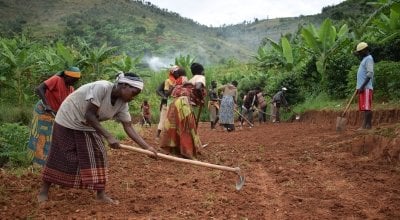
Knowledge Hub
There are hundreds of disasters around the world every year: floods, droughts, cyclones and conflict. These can vary from the local level to global scale. When local communities and governments are overwhelmed, Concern is among the first to help.
It is the poorest and most vulnerable who suffer most during disasters as they do not have the resources to prepare or react effectively. Many of those affected require humanitarian assistance just to stay alive. But they also need support to rebuild their shattered lives over the long term.
Why it's important
Concern’s analysis of trends in funding to the major coordinated humanitarian response mechanisms reveals worrying facts: the response to many ongoing disasters remains drastically underfunded; donors’ commitments are not being honoured; and donor countries have not effectively adapted their funding approaches to respond to protracted crises.
Whilst the number of people dying as a result of disasters has hugely decreased in the last 50 years, the number of people in need of humanitarian assistance has increased, with more than 134 million people in need of assistance and protection. This scale of need poses a major challenge to the international community – one which it is failing to meet. There are insufficient funds available to provide assistance to all those in need.
Concern is committed to ensuring that effective, timely humanitarian action is informed by humanitarian principles and is guided by policies and funding focused on the most vulnerable.



What we're calling for
An effective global humanitarian response system
Work towards a more effective global humanitarian response system which ensures timely, effective, and principled humanitarian action by providing rapid funding based purely on need, eliminating funding gaps.
Conflict prevention
An effective early warning and response system
Research and reports
Other ways to help
Donate now
Give a one-off, or a monthly, donation today.
Join an event
From mountain trekking to marathon running, join us for one of our many exciting outdoor events!
Buy a gift
With an extensive range of alternative gifts, we have something to suit everybody.
Leave a gift in your will
Leave the world a better place with a life-changing legacy.
Become a corporate supporter
We partner with a range of organisations that share our passion and the results have been fantastic.
Create your own fundraising event
Raise money for Concern by organising your own charity fundraising event.










